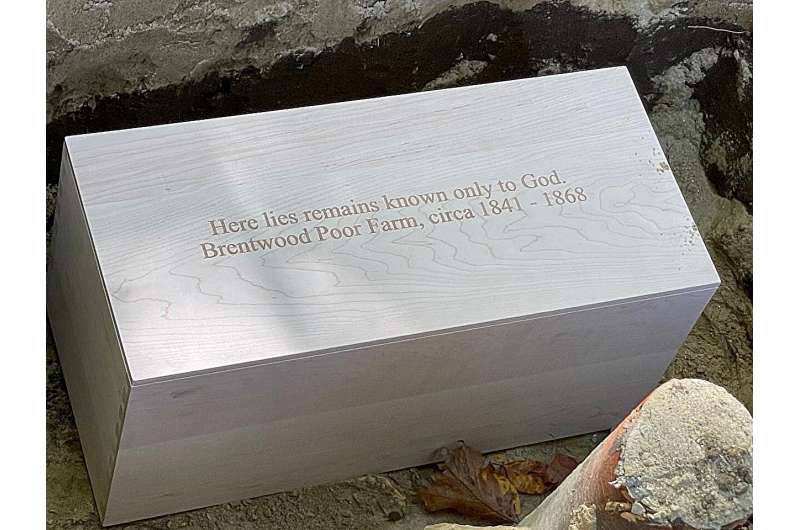Researchers from the University of New Hampshire’s Forensic Anthropology Identification and Recovery (F.A.I.R.) Lab worked with the town of Brentwood, New Hampshire to investigate and document the skeletal remains of individuals from a historic ‘poor farm’ that were uncovered more than 20 years ago. Their findings shed light on the harsh realities faced by the marginalized poor in the 19th century, and the community’s efforts to provide a dignified final resting place for these forgotten individuals. Poor farms were a common form of social welfare in the 19th and early 20th centuries, but their treatment of residents was often exploitative and inhumane.

Giving a Voice to the Forgotten Poor
On a quiet autumn day, the town of Brentwood, New Hampshire gathered to lay to rest the skeletal remains of individuals who had once lived and toiled at the local ‘poor farm’ during the mid-1800s. This somber ceremony was the culmination of a two-year collaborative effort between researchers from the University of New Hampshire’s Forensic Anthropology Identification and Recovery (F.A.I.R.) Lab, town officials, and the New Hampshire state archaeologist.
The remains, which had been uncovered more than 20 years ago during a construction project, were finally given the opportunity to be properly documented and understood. ‘We analyzed the skeletal remains to determine their age and condition and help solve the mystery of why they were buried in the remote area in an unmarked grave,’ explained Alex Garcia-Putnam, co-director of UNH’s F.A.I.R. Lab. ‘After several years of documenting the skeletal remains, we were honored to not only provide valuable information about their lives but to also have the rare opportunity to be present at the reburial—to put these individuals at peace and offer all interested parties some sense of closure.’
Uncovering the Harsh Realities of 19th-Century Poor Farms
The remains, which were initially discovered in 1999, had been in storage at the New Hampshire medical examiner’s office for over two decades before being transferred to the UNH research team. Through their meticulous analysis, the researchers were able to uncover the grim realities of life at the Brentwood Poor Farm.
According to their findings, which were published in the journal American Antiquity, the skeletal remains showed clear signs of hardship, including poverty, hard labor, and various health issues such as osteoarthritis, dental disease, and other indicators of physiological stress. ‘The remains were originally found in a grave without any markers—another indication of poverty—on land that was thought to formerly be the Brentwood Poor Farm from 1841 to 1868,’ said Amy Michael, co-director of UNH’s F.A.I.R. Lab.
Honoring the Forgotten and Bringing Closure to the Community
The reburial ceremony in Brentwood was a poignant moment, not only for the researchers but also for the local community. ‘All individuals deserve a respectful final burial and we hope that this event shows that Brentwood cares about its residents,’ said Joyce Keegal, superintendent of cemeteries in Brentwood. The town worked closely with the current landowners to ensure the remains were reinterred in the precise location of the original grave, a small but significant gesture to honor the forgotten paupers.
‘This has been an amazing community collaboration by the town of Brentwood, the state, the homeowners and UNH to not only provide answers and connect the threads but also bring closure and meaningful resolutions for all involved,’ said Amy Michael. As the town plans for a future exhibit about the Brentwood Poor Farm, the community can take solace in knowing that these individuals have finally been laid to rest with the dignity and respect they deserved.
